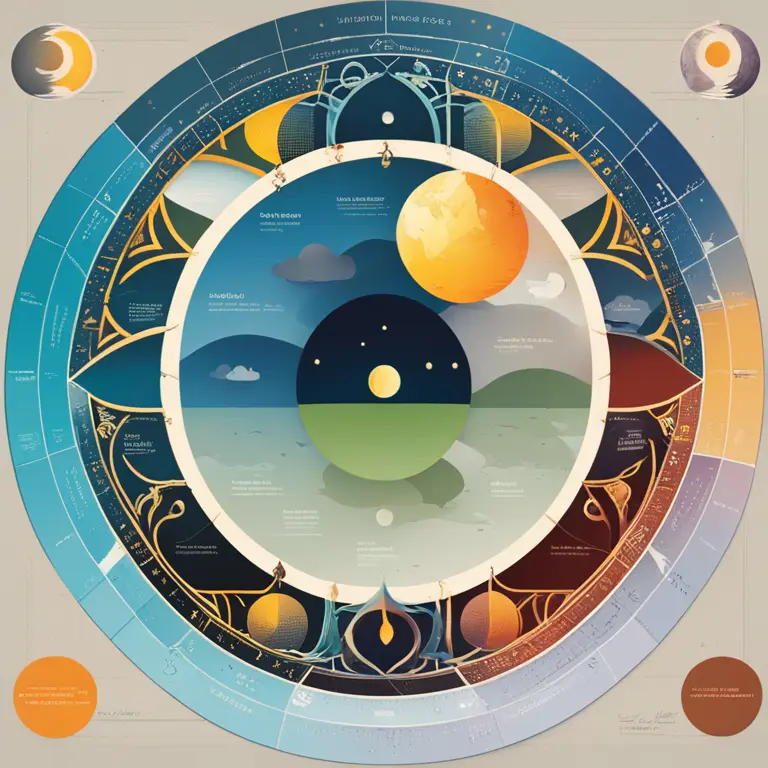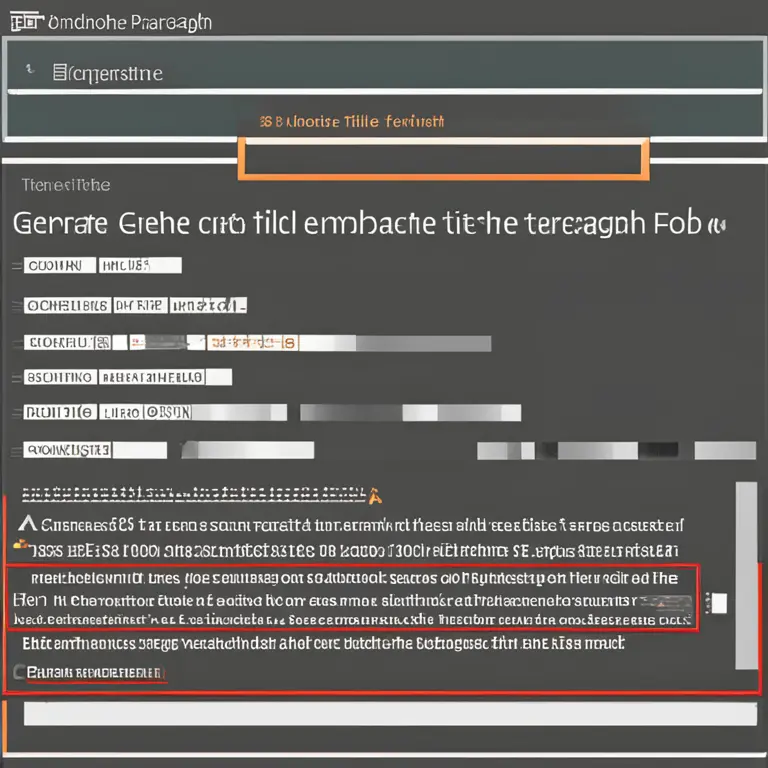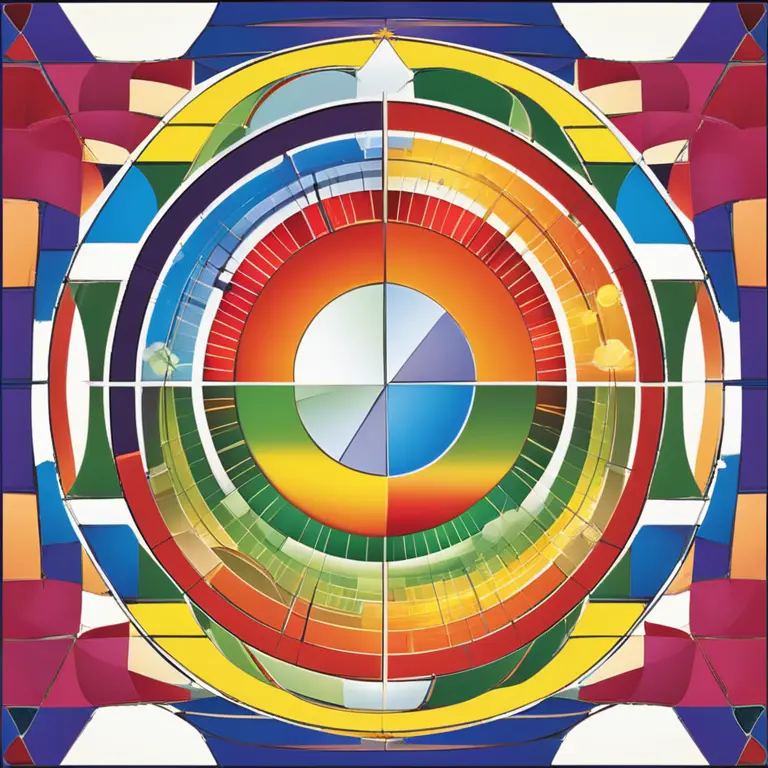
The Basics of Biorhythms: Life's Natural Cycles
Delve into the fundamentals of biorhythms to understand how life's natural cycles influence our emotional, physical, and intellectual states.
article by Adrian Wallace
Introduction to Biorhythms
Biorhythms are a concept that suggests our lives are influenced by natural mathematical cycles. According to the theory, from the moment of birth, we are subjected to three primary cycles: Physical, Emotional, and Intellectual. Each of these cycles has a specific duration: the Physical cycle lasts 23 days, the Emotional cycle is 28 days, and the Intellectual cycle spans 33 days. These time spans reportedly influence our capabilities and moods in their respective areas. The foundation of biorhythm theory lies in the idea that understanding these cycles can help us anticipate and respond to challenges in daily life.

Origin and History
The concept of biorhythms can be traced back to the 19th century when Dr. Hermann Swoboda and Dr. Wilhelm Fliess noticed recurrent patterns in various aspects of human behavior and health. They observed that certain days appeared to be better or worse for people, which led them to theorize about bodily rhythms and cycles that could predict these fluctuations. Over time, their work laid the groundwork for the biorhythm theory we discuss today, albeit with more scientific skepticism surrounding its validity.

Physical Cycle Details
The Physical cycle of biorhythms, lasting approximately 23 days, is believed to affect one's strength, endurance and overall physical state. When the curve of this cycle is in the positive phase, individuals might feel at their peak in terms of physical energy and health. Conversely, during the negative phase of the physical cycle, one's physical capabilities might be reduced, suggesting that it's a time for extra rest and recovery. The day it crosses from high to low, or vice versa, is considered critical and one should be wary of physical activities.

Emotional Cycle Insights
The Emotional cycle's 28-day span correlates with our mood swings, sentiments, and emotional resilience. A positive phase might result in increased creativity, stable mood, and emotional vitality, while a negative phase could bring about emotional instability or a lack of enthusiasm. This pattern, tied closely to the moon's cycle, indicates that our emotions ebb and flow like the tides, potentially empowering us to navigate social interactions and personal relationships more effectively.

Intellectual Cycle Exploration
The Intellectual cycle extends for 33 days and is thought to affect cognitive functions such as memory, alertness, and analytical abilities. When we are in the upward arc of this cycle, our mental faculties are said to be at their sharpest. This might suggest better decision-making, learning capability, and intellectual output. During the downward phase, it could be beneficial to engage in less demanding cognitive tasks and more in reflection or brainstorming.
Applying Biorhythm Theory
Proponents of biorhythm theory advocate that by tracking these cycles, one can potentially improve life management. Applications and software available in 2024 offer personalized biorhythm charts, allowing people to plan activities around their predicted high and low phases. While there's no solid scientific evidence to fully endorse the efficacy of biorhythms, many individuals use these patterns as a guide for personal insight and planning, much like horoscopes in astrology.
Skepticism and Science
It is crucial to maintain a balanced view regarding biorhythms. The scientific community largely debunks the biorhythm theory as pseudoscience, arguing that no empirical evidence robustly supports the prediction of personal experiences based on these cycles. Consequently, while biorhythm charts might provide intriguing insights, they should be considered alongside other factors such as lifestyle, environment, and personal choices when looking at one's overall well-being.
Published: 1/30/2024
Modified: 1/30/2024
More predictions
Come back here soon to learn more about yourself and your future


The Rhythms Within Science: A Guide to Biorhythms
Delve into the science of biorhythms to grasp how the physiological cycles influence our lives. This guide breaks down the complexity of biorhythmic patterns.


The Rhythms Concept: A Guide to Biorhythms
Discover the intriguing concept of biorhythms: the cyclic patterns influencing our physical, emotional, and intellectual states.


The World Of Rhythms: A Guide to Biorhythms
Delve into the world of biorhythms to comprehend how they influence our physical, emotional, and intellectual states. Discover their significance and implications for your day-to-day life.